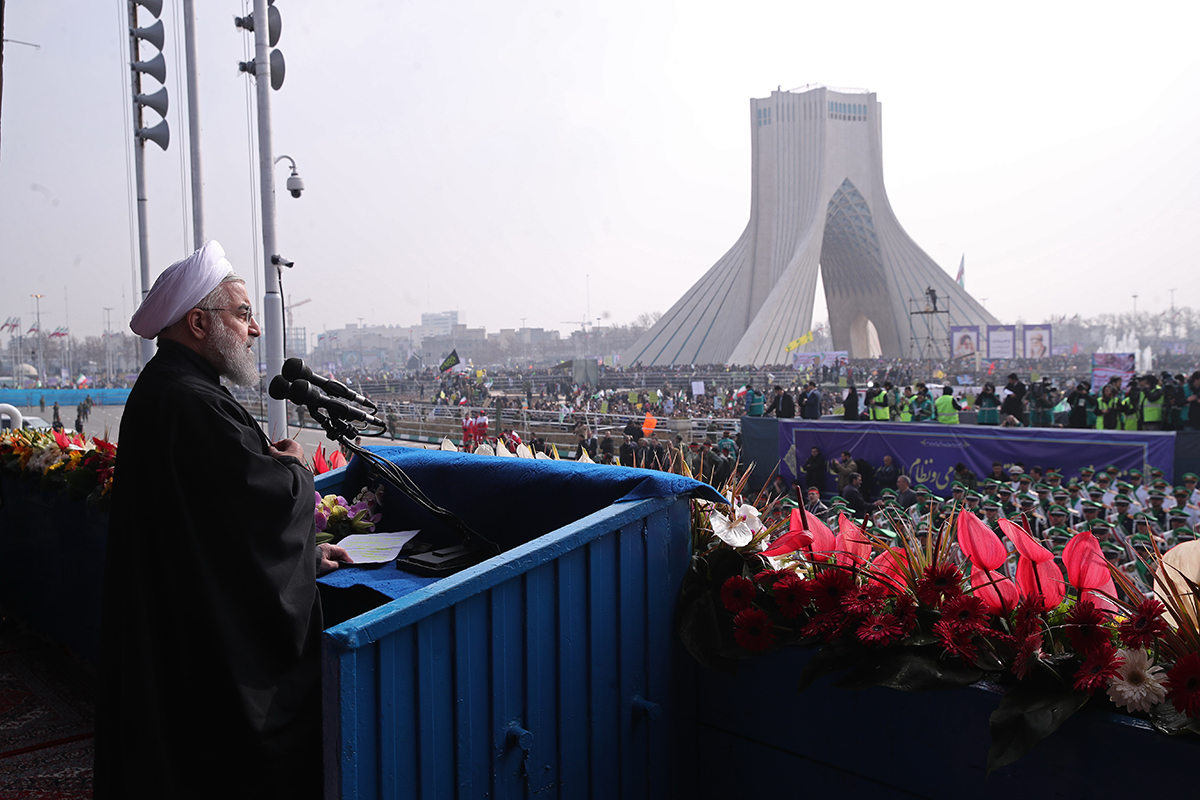US Report: Iran’s Human Rights Abuses
On March 3, the U.S. State Department released its annual human rights report. The following is the executive summary of the Iran country report, which covers 2016.
On March 3, the U.S. State Department released its annual human rights report. The following is the executive summary of the Iran country report, which covers 2016.
On February 27, the International Monetary Fund (IMF) released its annual report on Iran’s economy.
 On February 26, Iran’s ex-president Mahmoud Ahmadinejad published a lengthy open letter to President Donald Trump encouraging him to end U.S. interventions in the Middle East.
On February 26, Iran’s ex-president Mahmoud Ahmadinejad published a lengthy open letter to President Donald Trump encouraging him to end U.S. interventions in the Middle East.
On February 17, Iran’s national wrestling team beat the U.S. team 5-3 to take the gold in the World Cup freestyle championship. The match was held in Kermanshah, Iran. Just weeks before the competition, the Americans thought they might not be able to attend. The Islamic Republic vowed reciprocation after President Donald Trump issued a visa ban for citizens of seven Muslim-majority countries, including Iran. But after the courts put a pause on the controversial executive order, Iran granted visas to the wrestlers.
On February 15, President Donald Trump condemned the Iran nuclear deal during a joint press conference with visiting Israeli Prime Minister Benjamin Netanyahu at the White House. Trump said it is “one of the worst deals” he’s ever seen and that his administration would do more to prevent Tehran from attaining a nuclear weapon. Netanyahu lauded Trump for his administration’s strong reaction to Iran’s recent ballistic missile test, including imposing new sanctions.
 On February 14, the Acting State Department Spokesperson Mark Toner called for the immediate release of 2009 presidential candidates and opposition leaders Mehdi Karroubi and Mir Hossein Mousavi as well as Mousavi’s wife, women’s rights advocate Zahra Rahnavard. They have been under house arrest for six years for leading Green Movement protests after the disputed 2009 election. But they have not been formally charged with any crimes.
On February 14, the Acting State Department Spokesperson Mark Toner called for the immediate release of 2009 presidential candidates and opposition leaders Mehdi Karroubi and Mir Hossein Mousavi as well as Mousavi’s wife, women’s rights advocate Zahra Rahnavard. They have been under house arrest for six years for leading Green Movement protests after the disputed 2009 election. But they have not been formally charged with any crimes.
On February 10, President Hassan Rouhani addressed demonstrators celebrating the 38th anniversary of the Islamic revolution. The following are remarks from the speech via his office's website.
 “The Islamic revolution is the most important turning point of our country’s history.”
“The Islamic revolution is the most important turning point of our country’s history.”
President Donald Trump’s statements challenging the nuclear deal with Iran contrast with the views of key European allies in support of the agreement. On January 30, French Foreign Minister Jean-Marc Ayrault touched down in Tehran for a two-day visit that included meetings with President Hassan Rouhani and Foreign Minister Javad Zarif. Ayrault’s trip is the most recent in a series of bilateral visits heralding a renaissance in Franco-Iranian relations.
On February 7, Supreme Leader Ayatollah Ali Khamenei denounced President Donald Trump in an address to air force commanders. He thanked Trump for revealing the “true face” of the United States. “What we have been saying, for over thirty years, about political, economic, moral, and social corruption within the U.S. ruling establishment, he came out and exposed during the election campaigns and after the elections,” said Khamenei.
In Freedom House’s annual report, Iran received a score of 17 out of 100, with 100 being the most free. It also received poor marks for political rights and civil liberties. “Freedom in the World 2017” is the organization’s flagship report, which assesses the condition of political rights and civil liberties around the world. It is composed of numerical ratings and supporting descriptive texts for 195 countries and 15 territories. The following is Iran’s profile from the report.